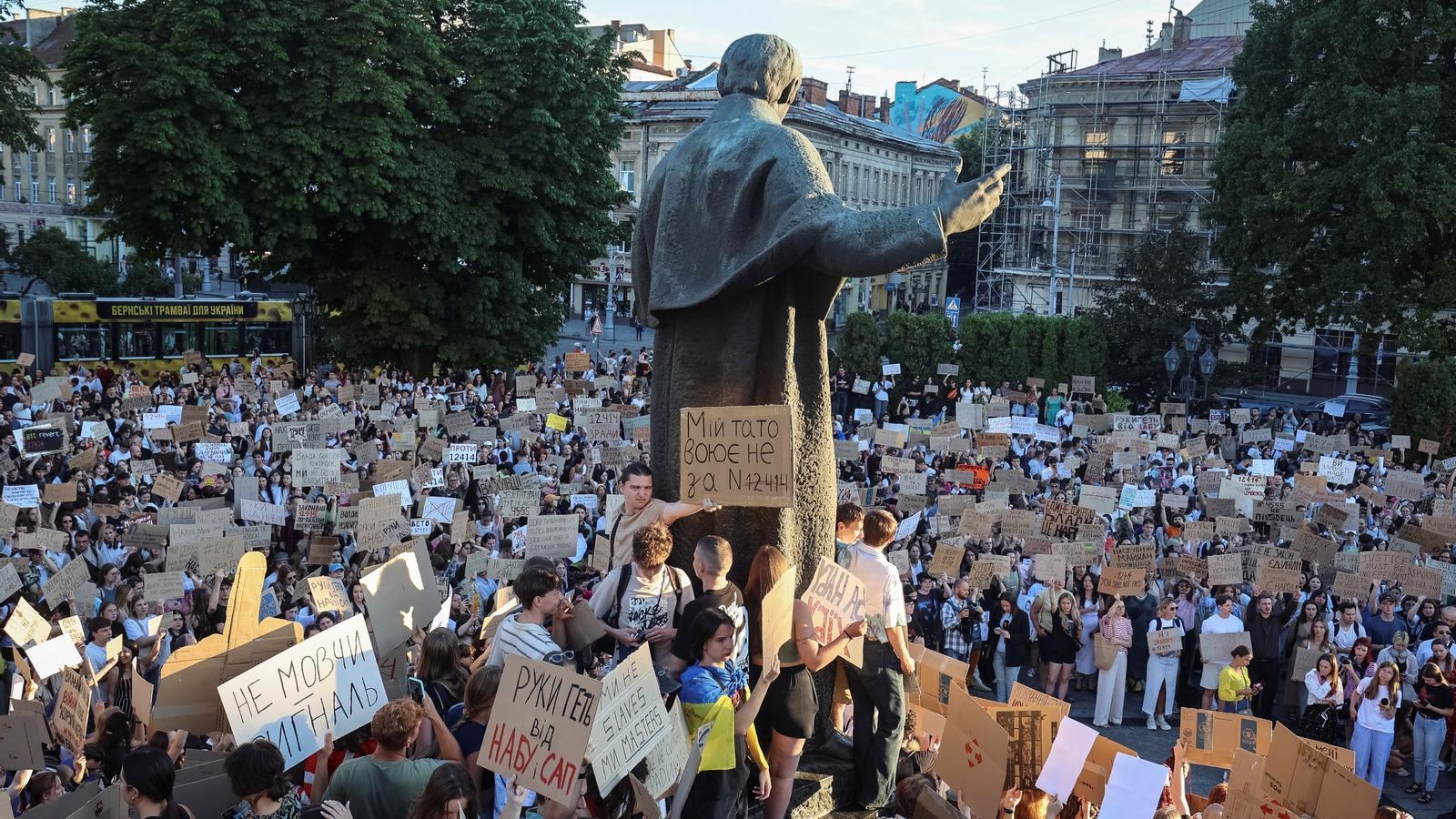Zelensky backs down on attempts to neutralize anti-corruption agencies after initial protests in Ukraine
The Ukrainian president had received pressure and criticism from both civil society and European leaders.

BarcelonaUkrainian President Volodymyr Zelensky has bowed to public and international pressure and reversed his attempt to seize power from the country's two anti-corruption agencies. On Tuesday, the Ukrainian parliament passed a law to undermine the independence of both bodies, alleging they could be subject to Russian influence. This decision sparked protests in Kiev and other cities for the first time since the Russian invasion began three and a half years ago. On Wednesday, Zelensky himself promised to review the law and, hours later, published a video announcing a law to "strengthen the rule of law in Ukraine" that would guarantee the independence of the anti-corruption agencies while ensuring that "there is no Russian influence." "We listen to what society is saying. We see that people expect state institutions to ensure fairness and efficiency," the Kiev president later emphasized.
The controversial law, passed Tuesday in parliament and now in force, places the two anti-corruption agencies, the National Anti-Corruption Bureau (NABU) and the Anti-Corruption Prosecutor's Office (SAPO), under the control of Prosecutor General Ruslan Kravchenko, a presidential appointee. This means that the Prosecutor General will now have access to all information related to the investigations.
The law was voted on after intelligence services raided both agencies and several investigators' homes on Monday, citing suspicions of "Russian interference." Indeed, in Wednesday's video, these suspicions served as Zelensky's explanation when defending the law enacted Tuesday. In the same recording, he stated that Kravchenko, in office for only a month, is "committed to punishing those who break the law" and accused the agencies of being too slow and not thoroughly investigating all corruption cases.
However, both agencies have been investigating high-ranking government officials, such as Deputy Prime Minister and Minister of National Unity Oleksi Chernitchev, who was accused of accepting bribes from a real estate agency. The government has also been investigating the invasion—and has protected billions of dollars in development aid and investments from the International Monetary Fund.
The first protests of the war
The scandal has caused Zelensky, who continues to enjoy a popularity rating above the European average, to face the first protests against his government since the start of the Russian invasion of Ukraine. On both Tuesday and Wednesday, thousands of protesters took to the streets in Kiev and other major cities across the country, and up to 3,000 demonstrators gathered outside the presidential office on Wednesday. Several civil society leaders have accused Zelensky of breaching an informal contract with citizens and have informed him that the tacit agreement that inappropriate government decisions would not be criticized during the war has been broken.
Ukraine's European allies, including France and Germany, and even European Commission President Ursula von der Leyen, also have expressed concern about the decision of the Ukrainian parliament"Respect for the rule of law and the fight against corruption are central elements in the European Union. As a candidate country, Ukraine must firmly commit to these standards," a Commission spokesperson stated. The European Commissioner for Enlargement and European Neighborhood Policy also called the "anti-corruption" measures a "step backward." Similarly, Defense Commissioner Andrius Kubilius noted that "during war, trust between a nation and its leaders is more important than modern weapons."
In this context, Zelensky met yesterday with the heads of the security forces and anti-corruption agencies. After the meeting, he announced he would enact a new law restoring independence to the NABU and SAPO, which will be voted on in parliament on July 31. However, the pressure on the Ukrainian president continues, and protesters believe Zelensky has not touched the essential and most controversial part of the law. For its part, the opposition asserts it will pressure Kiev's allies to maintain the independence of the anti-corruption agency, and Holos Party MP Yaroslav Zheleznyak announced he would appeal the law to the Constitutional Court.
